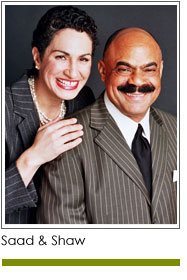 Data managers are one of the most under-rated – and least engaged – members of a fundraising solicitation team. Don’t make the mistake of overlooking their value.
Data managers are one of the most under-rated – and least engaged – members of a fundraising solicitation team. Don’t make the mistake of overlooking their value.
Sometimes we inadvertently forget to include the most important people in our fundraising planning. We make sure we have top leadership, board members, community leaders, major donors, and local/regional influencers at the table. We have our fundraising staff and volunteers prepared and ready to go. But we don’t invite the person responsible for data management. That is a big mistake! Here’s why.
The person or people responsible for data management within your organization are very familiar with your donors. They spend their time looking at data – names, giving amounts, address changes… If your nonprofit takes the time to record known relationships between donors, volunteers, and board members then these staff members know a lot about who-knows-who. They observe trends in giving, such as when there is a “spike” in giving, and when you are in a “dry spell.” They know what data you are tracking, what you are not tracking, and how this impacts the information available for decision making. They know types of reports you can run and the different ways you can sort and review data as you prepare for fundraising.
Your data management people can provide your fundraising team with giving information for specific donors over a three- or five-year period, or longer. They can run reports showing who has given at the highest levels over multiple years. These can show giving year-by-year, or cumulative giving. They can let you know who gave last year but not this year; who attended your last gala; and who has been a sponsor for events in the past and could be approached for a gift or grant even if you can’t have your in-person event.
In many cases the donor management team is also responsible for stewardship. That means they are the ones who craft and send out thank-you letters and emails; they may be the people who take RSVPs for events; and they might be talking with your donors by phone when they call into your organization.
You can ask your data team to take on special projects to help your fundraisers prepare for an ask. For example, they can use publicly available information about which other nonprofits your donors are affiliated with or give to. This can be part of the process of creating a donor profile for use in fundraising by a staff member or volunteer. Such a profile contains information about prior giving, interests, relationships, role in the community, event attendance, and involvement with your organization. It also includes a suggested ask amount.
Bottom line: don’t let preconceptions get in the way of determining who should be part of your solicitation team. Your data people know more than you think they do. And, if you make them a full member of your team, sharing your plans and projections, they can add insights and data you need to succeed.
Copyright 2021
Mel and Pearl Shaw of Saad&Shaw – Comprehensive Fund Development Services. Let us help you plan for 2021 Video and phone conferencing services always available. Call us at (901) 522-8727. www.saadandshaw.com.













